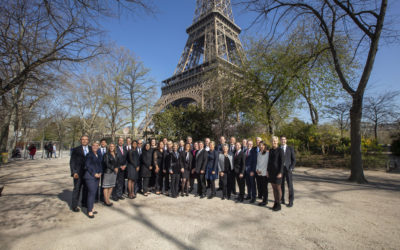With resilience through the crisis or: “The willow is flexible, so it does not fear the storm.” (Japanese proverb)
Dear reader,
The COVID 19 crisis, which has hit us like the proverbial storm, is shaking many companies to their foundations.
“Flexible as a willow” is a resilient manager who is able to deal with difficult situations elastically. Often it is a question of the perception, – is it a problem or simply a challenge?-, that decides how to deal with the issue at hand.
For resilient managers, such challenges are more of an opportunity to create something new and less an individual threat. Because being resilient means keeping control over oneself and thus (re)acting with foresight and composure, even in the face of unexpected opportunities.
Those who rigidly defy change and build up resistance cannot survive in stormy times and will fold. Only those who possess emotional and mental flexibility are well positioned. And this applies not only to the Corona crisis, but also to all the upcoming transformation processes that every company is currently undergoing to ensure its long-term competitiveness.
Last but not least, it is the individual employees and teams who benefit from management with a sure hand. Resilient managers are the guarantors for a successful transformation. In their role model function of dealing constructively with change, they encourage their employees’ willingness to learn and their commitment, as older studies by Harvard Business School and Bertelsmann have already shown.
This makes it all the more important not to immediately revert to the familiar modus operandi once the crisis is over. Resilience means integrating everything newly learned, as well as what has been tried and tested during the crisis, into everyday life.
Flexible action strategies promote agility in the company and help to be prepared for a successful future, because those who do not change will either stand still or fall by the wayside.
Resilience is a competence that can be learned through experience and individual solution finding, an investment in one’s own ability to act. The time and work invested helps not only the manager himself, but also the other employees and the company as a whole.
Further contributions:
Worldwide study: How do corporate leaders deal with COVID-19?
The global management consultant network INAC carried out a global study on how managers deal with COVID-19 in more than 40 countries. The results have now been published and can be read here.
read moreReturn to the office – return to normal?
The corona virus has been challenging us for quite some time. But the end of the pandemic is slowly in sight and normalcy should return. However, this is not as easy as expected. Because the return to everyday office life also means a change for us.
read moreWhat is the name of your Wellbeing Manager?
Have you ever heard of the feel-good-manager? A position in the company that has not been created just recently – at least it should not be, but how does reality look like?
read more


